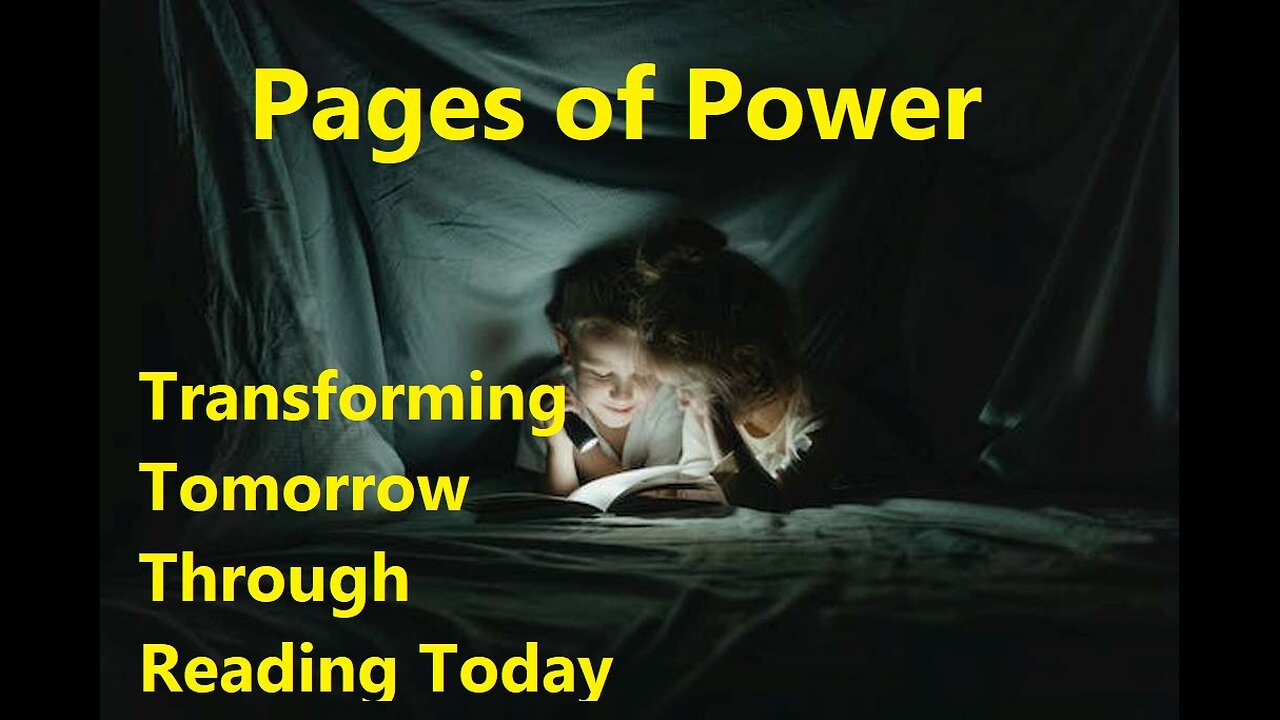Premium Only Content

Pages of Power: Transforming Tomorrow Through Reading Today
1. Technological Distractions: The pervasive use of smartphones, tablets, and other electronic devices has led to children spending more time on screens, diverting their attention away from traditional reading activities.
2. Lack of Role Models: Children often mimic the behavior of adults around them. If parents or caregivers are not avid readers, children may not see the importance of reading and may not develop a reading habit.
3. Busy Lifestyles: Over-scheduled routines with numerous extracurricular activities and homework leave children with limited leisure time. Reading may be perceived as a low priority in comparison to other activities.
4. Instant Gratification Culture: In an era of quick information access and instant gratification, some children may find the slower-paced process of reading books less appealing than more immediate forms of entertainment.
5. Educational System Pressure: An education system focused heavily on standardized testing and academic achievement might prioritize rote learning over fostering a love for reading, leading children to associate reading with a chore rather than enjoyment.
6. Limited Access to Books: Economic factors or living in areas with limited access to libraries and bookstores can hinder children's exposure to a variety of reading materials.
7. Preference for Visual Media: The rise of visually stimulating media, such as video games and streaming services, may attract children more than the immersive world of books, contributing to a decline in reading interest.
8. Peer Influence: In some cases, children may be influenced by peers who do not value or engage in reading, leading to a social stigma around being a reader.
9. Ineffective Reading Programs: If reading programs at schools are not engaging or fail to capture the interests of children, they may not develop a positive attitude towards reading.
10. Unawareness of Future Losses: Children may not realize the long-term consequences of not cultivating strong reading skills. Poor reading habits can impact academic success, critical thinking abilities, and overall cognitive development, potentially limiting future career opportunities and personal growth.
The losses children may not see in the future include missed chances for intellectual stimulation, reduced vocabulary and communication skills, diminished creativity, and a potential disadvantage in academic and professional pursuits that rely on strong reading abilities.
-
 LIVE
LIVE
Jeff Ahern
31 minutes agoMonday Madness with Jeff Ahern
91 watching -
 20:08
20:08
Professor Nez
1 hour ago🚨🔥BRUTAL! Trump ROASTS Newsom SO BAD it BREAKS Gavin for Good
1.36K1 -
 7:28
7:28
Rethinking the Dollar
2 hours agoGold Surges as Russia Calls Out US Debt Crypto Plan
1221 -
 2:04:38
2:04:38
Side Scrollers Podcast
4 hours agoEveryone HATES Baseball Karen + Gaming’s Newest Virtue Signal + MORE | Side Scrollers Live
6.75K3 -
 1:37:20
1:37:20
Sean Unpaved
2 hours agoYardline Yarns: Giants Need Juice, Bills-Ravens Classic, Dolphins' Soft Spot & Packers Prove It
16.8K -
 1:05:03
1:05:03
Timcast
3 hours agoDemocrat media COVERS UP Irina Zarutska Murder, Second White Woman Killed, Trump Says WAR
104K108 -
 2:07:35
2:07:35
Steven Crowder
5 hours agoThe Murder of A Ukrainian Refugee is A Tipping Point in American History
336K333 -
 1:03:37
1:03:37
The Rubin Report
4 hours agoMedia Caught Trying to Ignore Ugly New Details of Charlotte Train Stabbing Caught on Tape
48.9K99 -
 1:25:59
1:25:59
Rebel News
2 hours agoConservative MP rips Doug Ford, Carney's decarbonization scheme, Security cam rules | Rebel Roundup
15.8K4 -
 58:13
58:13
Badlands Media
3 hours agoThe Daily Herold: Sept. 8, 2025
20.1K2